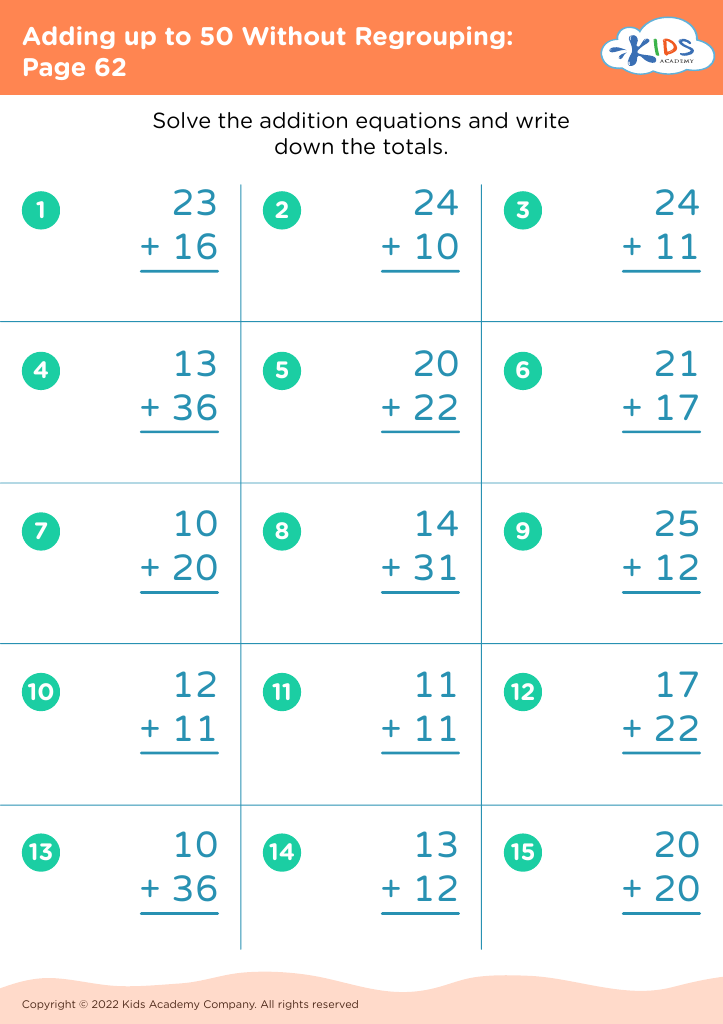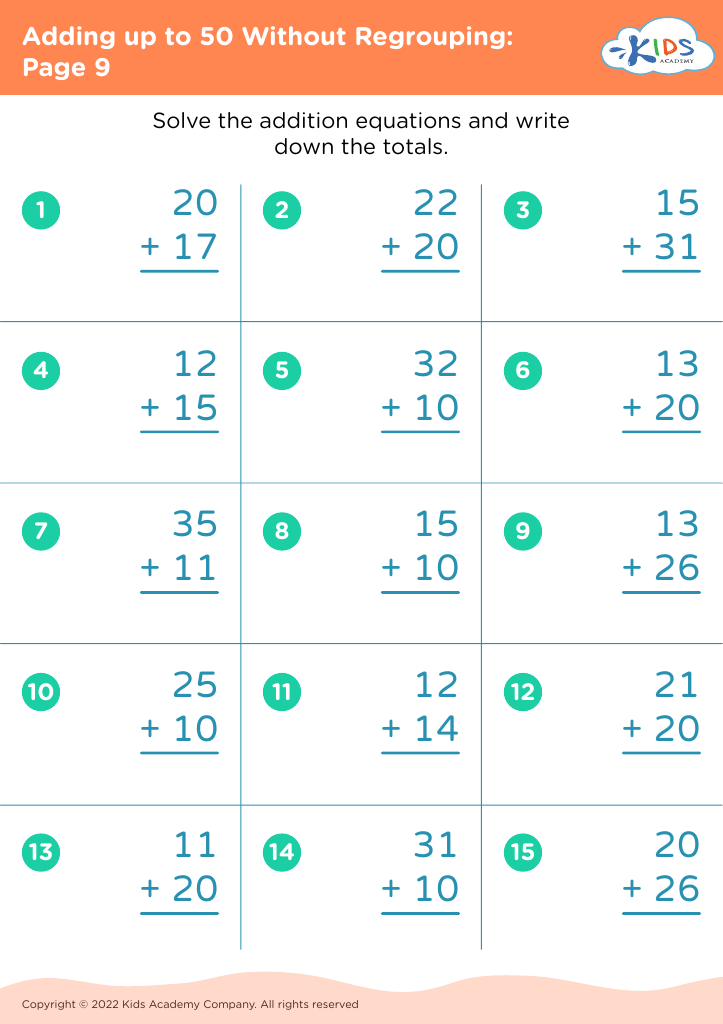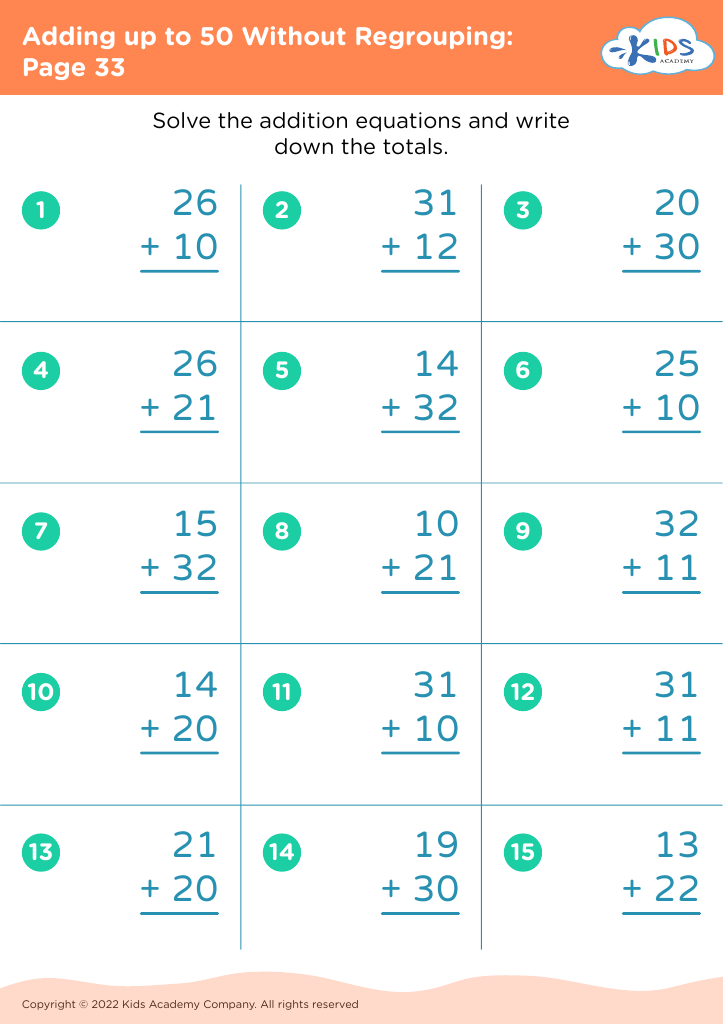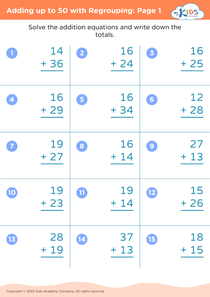Addition Practice Adding up to 50 Without Regrouping Worksheets for Ages 8-9
6 filtered results
-
From - To
Enhance your child's math skills with our "Addition Practice Adding up to 50 Without Regrouping Worksheets" tailored for ages 8-9. These engaging and educational worksheets aid in mastering foundational addition concepts in a fun and interactive way. Designed to support learning, each worksheet offers various exercises to practice adding numbers up to 50 without the need for regrouping. This solid repetition builds confidence and fluency, skills essential for more advanced math challenges. Ideal for home and classroom use, our worksheets provide the perfect balance of enjoyment and educational value to help young learners succeed in math. Download now to boost your child's mathematical proficiency!
Parents and teachers should prioritize addition practice up to 50 without regrouping for 8-9 year-olds because it consolidates foundational math skills critical for future learning. At this age, children are building their number sense and ability to manipulate basic numerals. Mastering addition without regrouping enhances their mental arithmetic, leading to improved mathematical fluency and confidence.
Focusing on sums within 50 ensures that students can handle reasonably complex numbers without becoming overwhelmed. This strikes a balance between challenge and achievability, helping to maintain engagement and prevent discouragement. Moreover, proficiency in basic addition sets the stage for tackling more advanced operations, including subtraction with borrowing, addition with regrouping, and beginning multiplication.
Addition practice also encourages the development of problem-solving skills. As they navigate various addition scenarios, children learn to recognize patterns, generate strategies, and think critically. This cognitive exercise is crucial for their overall academic growth and supports other areas of learning, such as reading comprehension where pattern recognition is vital.
Lastly, addition practice without regrouping translates into real-life competency. From handling money to everyday problem-solving, this foundational skill provides practical benefits that extend beyond school.
By reinforcing these essential skills, parents and teachers can help children build a strong numerical foundation, setting them up for future academic success and everyday competency.
















